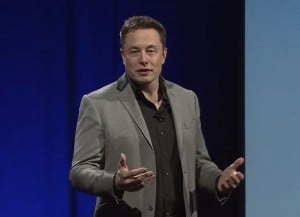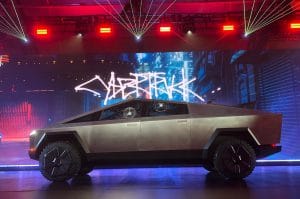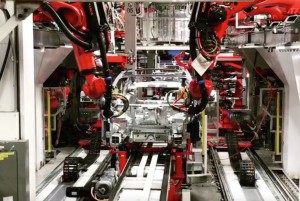
Tesla CEO Elon Musk said last month during an investor call that the company wouldn’t be seeking to raise more cash.
Tesla officials have maintained for some time that they have no plans to raise any new funds, including through a new stock sale. So naturally, the company is now issuing $2 billion in new shares.
The EV maker’s stock price has increased dramatically – by triple – in the last four months, presenting an opportunity too grand to ignore. In fact, its stock price exceeded $900 before it began sliding down into the mid-$700 range and then creeping back up. In fact, in mid-afternoon trading the stock is up 5%, or $38.75 to $806.04.
In filings with the Securities and Exchange Commission, the company said it plans to offer 2.65 million shares. CEO Elon Musk plans to buy up to $10 million in shares, while board member and Oracle co-founder Larry Ellison will purchase up to $1 million worth of Tesla shares.
(Tesla stock sets new high, surging past $900 a share.)
The move to sell new shares flies in the face of what Musk himself has repeatedly said about the company’s need to raise money or to take advantage of the jump in pricing. During the company’s most recent earnings call, at least one person asked Musk about the possibility and he brushed it aside, saying it “doesn’t make sense,” he said.

Tesla will be launching plenty of new products, including the Model Y SUV, its big Semi, and the Cybertruck shown here, all of which cost money.
He noted that diluting the company’s shares to pay down its debut “doesn’t sound like a wise move,” according to Reuters. However, it’s not as if the company doesn’t have some pretty big expenses to deal with and extra $2 billion might come in handy.
The company is readying to deliver the new Model Y sport-utility six months early, and there are expenses related to that. Additionally, the company is in the process of building a new Gigafactory in Germany, outside of Berlin. There is also talk of expanding the plant in China as well as the need to increase battery production at Gigafactory Nevada.
Increasing battery production tops Musk’s “must-do” list, he mentioned during the aforementioned call. He noted that production of the semi truck and Cybertruck will be limited until the production levels can be increased because of those two require significantly more battery cells than the other vehicles.
Musk’s former staunch denials of needing to raise additional and this reversal is likely to raise some concern among investors, according to Wedbush analyst Daniel Ives.
(Tesla’s Musk says Model Y, 400-mile Model S coming soon.)
“In our opinion the size of this offering is larger than many had anticipated, but we believe it’s a smart move by Musk and the Board to take advantage of being back in a position of strength,” Ives wrote in a note to investors.

Tesla is going to need to invest in its battery production capacity in order to make sure it can produce its Semi truck and Cybertruck as well as its other vehicles.
Tesla’s outstanding debt was $13.42 billion at the end of 2019, and it has posted its quarterly profits in two consecutive quarters, confidently noting would set another production record in 2020, topping 500,000 units.
The company said it plans to use proceeds from the offering to strengthen its balance sheet and for general corporate purposes, but a share price hasn’t been officially set; however, Musk appears to buying his for a little more than $767 a share.
Tesla raised about $2.3 billion last May, according to Reuters, to start production in China and spend on developing new models, including the high-volume Model Y SUV and a Semi commercial truck.
Additionally, the company petitioned the Chinese government to build longer-range Model 3 sedans at its new plant in Shanghai. The current iteration can travel about 250 miles on a single charge.
(Tesla sets new production record, posts small loss for 2019.)
The company also announced it would be recalling about 15,000 of its 2016 Model X SUVs due to a problem with vehicle’s power steering assist, which could fail and make it more difficult to steer. The aluminum bolts that attach the electric power steering gear assist motor to the gear housing may corrode and break causing a reduction or complete loss of power steering assist.
